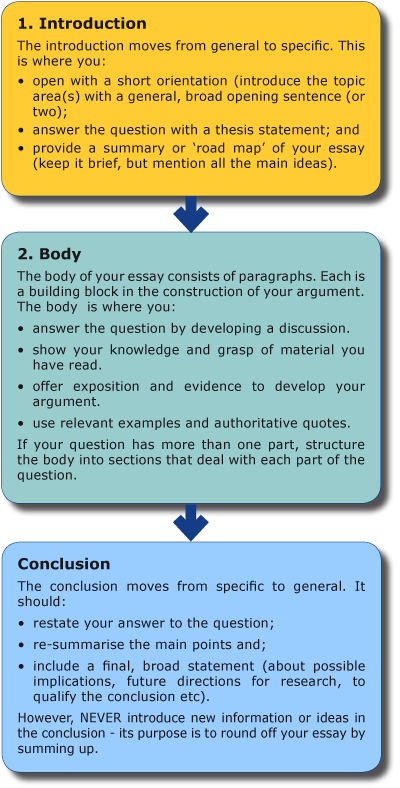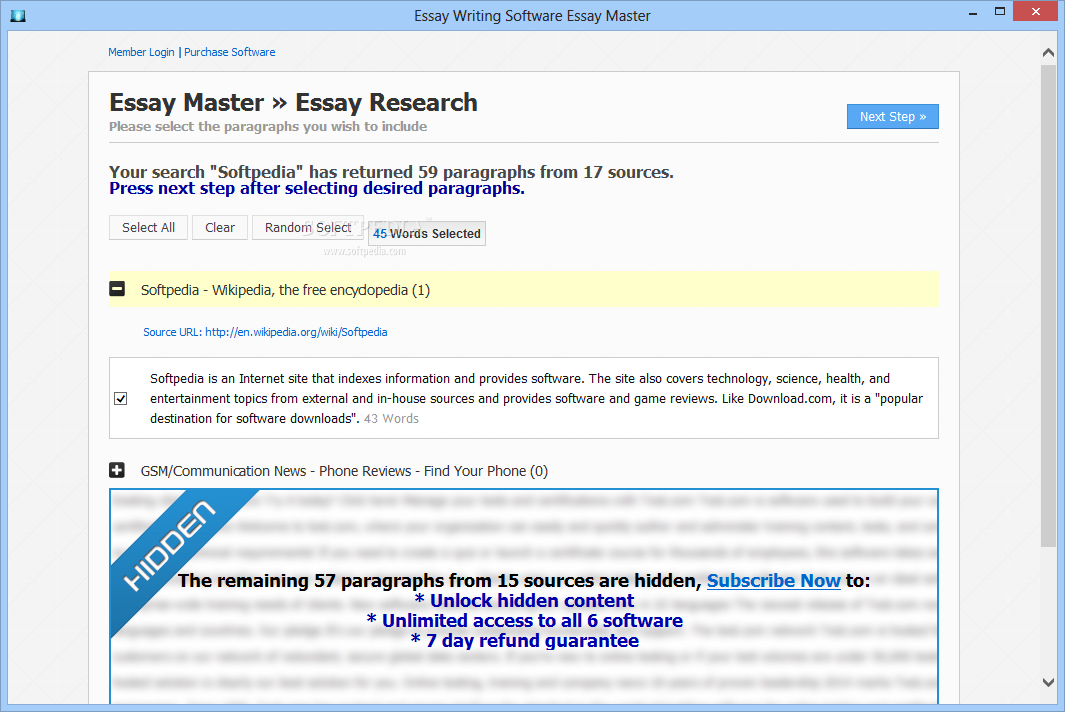
Tips for Writing an Essay Have a clear purpose. Determine whether your essay is meant to inform or persuade (You can also see persuasive essay) Do your research. Expand your knowledge on the topic by referring to several books and journals. Through this, you’ll be Build your vocabulary. Keep Introduction HOW TO WRITE GREAT ESSAYS vii I n your preparations for college, you may find yourself facing a handful of high-stakes essays. Your college application requires at least one, and the SAT requires another. Depending upon the high school you attend, or the state you reside in, you may need to write an exit essay, or take the Regents Feb 11, · Use an outline to plan out your essay/research paper before writing it. Working from your thesis statement, plot out how you want your paper to flow and what information you want to include. This will make writing the full draft of your paper much easier. 4. Begin with the body, not the blogger.coms: 29
How To Write an Essay
Knowing how to write an essay is a skill that you can use throughout your life. The ability to organize ideas that you use in constructing an essay will help you write business letters, company memos, and marketing materials for your clubs and organizations.
Anything you write will benefit from learning these simple parts of an essay:. Here are five steps to make it happen:. Before you can start writing, you must have an idea to write about. If you haven't been assigned a topic, it's easier than you might think to come up with one of your own. Your best essays will be about things that light your fire.
What do you feel passionate about? What topics do you find yourself arguing for or against? Choose the side of the topic you are "for" rather than "against" and your essay will be stronger. Do you love how to right a essay Are you an advocate for children? Domestic peace? The hungry or homeless? These are clues to your best essays. Put your idea into a single sentence. This is your thesis statementyour main idea. Choose a title for your essay that expresses your primary idea.
The strongest titles will include a verb. Take a look at any newspaper and you'll see that every title has a verb. Your title should make someone want to read what you have to say. Make it provocative. Some people will tell you to wait until you have finished writing to choose a title. Other people find that writing a title helps them stay focused. You can always review your title when you've finished the essay to ensure that it's as effective as it can be. Your introduction is one short paragraph, just a sentence or two, that states your thesis your main idea and introduces your reader to your topic.
After your title, this is your next best chance to hook your reader. Here are some examples:. The body of your essay is where you develop your story or argument, how to right a essay.
Once you have finished your research and produced several pages of notes, go through them with a highlighter and mark the most important ideas, the key points. Choose the top three ideas and write each one at the top of a clean page. Now go through your notes again and pull out supporting ideas for each key point. You don't need a lot, just two or three for each one. How to right a essay a paragraph about each of these key points, how to right a essay, using the information you've pulled from your notes.
If you don't have enough for one, you might need a stronger key point. Do more research to support your point of view. It's always better to have too many sources than too few. You've almost finished, how to right a essay. The last paragraph of your essay is your conclusion.
It, too, can be short, and it must tie back to your introduction. In your introduction, you stated the reason for your paper. In your conclusion, you should summarize how your key points support your thesis. Here's an example:. If you're still worried about your essay how to right a essay trying on your own, how to right a essay, consider hiring an essay editing service. Reputable services will edit your work, not rewrite it.
Choose carefully. One service to consider is Essay Edge. Good luck! The next essay will be easier. Share Flipboard Email. For Adult Learners Tips For Adult Students Getting Your Ged. Deb Peterson. Education Expert. Deb Peterson is a writer and a learning and development consultant who has created corporate training programs for firms of all sizes. our editorial process.
Updated December 05, Anything you write will benefit from learning these simple parts of an essay: Purpose and Thesis Title Introduction Body of Information Conclusion Here are five steps to make it happen:.
Cite this Article Format. Peterson, Deb. The Five Steps of Writing an Essay. copy citation. Watch Now: How to Write a Strong Essay Conclusion. The Common Application Essay Prompts. Writers on Writing: The Art of Paragraphing.
Bad Essay Topics for College Admissions. Tips for Writing an Art History Paper. How to Write a Research Paper That Earns an A. Development in Composition: Building an Essay. The Ultimate Guide to the 5-Paragraph Essay. How to Write a Great College Application Essay Title.
Tips on How to Write an Argumentative Essay, how to right a essay. Write an Attention-Grabbing Opening Sentence for how to right a essay Essay.
How to Write an Eye-Catching Essay Introduction - Scribbr ��
, time: 4:33How To Write An Essay: Beginner Tips And Tricks | University of the People

Tips for Writing an Essay Have a clear purpose. Determine whether your essay is meant to inform or persuade (You can also see persuasive essay) Do your research. Expand your knowledge on the topic by referring to several books and journals. Through this, you’ll be Build your vocabulary. Keep Introduction HOW TO WRITE GREAT ESSAYS vii I n your preparations for college, you may find yourself facing a handful of high-stakes essays. Your college application requires at least one, and the SAT requires another. Depending upon the high school you attend, or the state you reside in, you may need to write an exit essay, or take the Regents Feb 11, · Use an outline to plan out your essay/research paper before writing it. Working from your thesis statement, plot out how you want your paper to flow and what information you want to include. This will make writing the full draft of your paper much easier. 4. Begin with the body, not the blogger.coms: 29

No comments:
Post a Comment